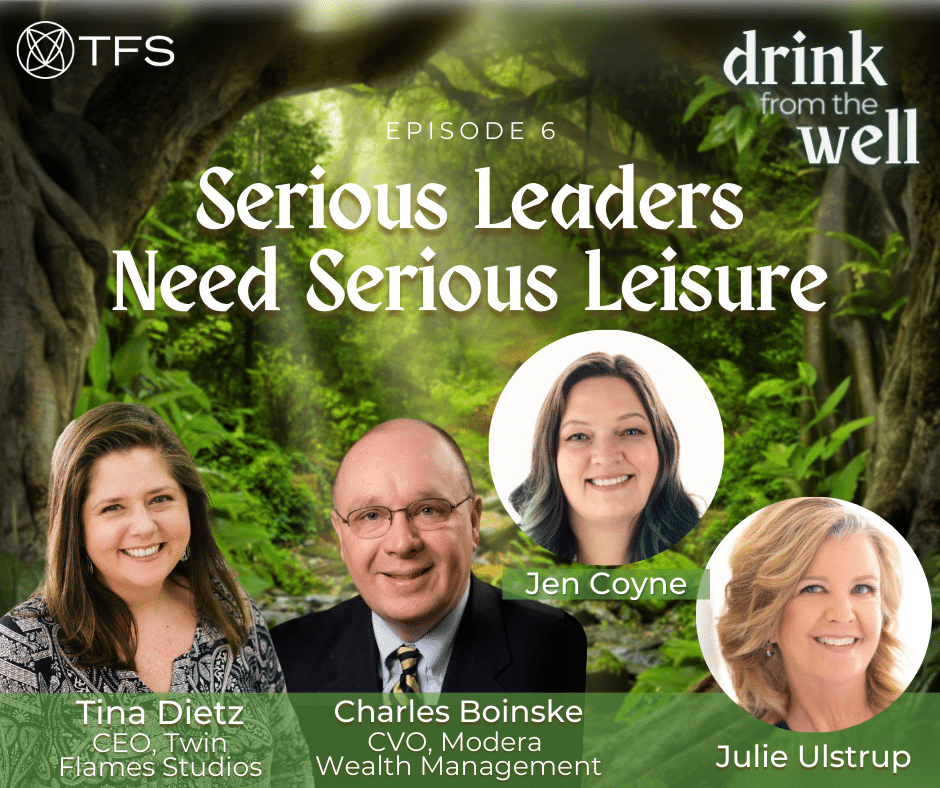
Business Development, Drink From the Well Podcast, Leadership, Podcast
Episode 6
Serious Leaders Need Serious Leisure
It's easy to get caught up in the never-ending demands of work, and let your personal life fall to the wayside. We've all done it. The pressure to keep on slogging never ends, but what if making time for yourself was actually the best thing you could do for yourself and your organization? Explore the extraordinary world of “serious leisure” and how it's transforming the lives of leaders in unique ways.
Don't miss our Leaders' Discussion Guide for this episode below – perfect for your next team Lunch & Learn!
Serious Leaders Need Serious Leisure – Episode Highlights
- Introduction to the concept of “serious leisure” and its significance for leaders and professionals (00:08)
- Differentiate “serious leisure” from regular leisure and its potential benefits (01:27)
- Hear from Charles Boinske about his childhood experience and early connection with fly fishing, his serious leisure pursuit, and its integration with his professional life (03:24)
- Tina Dietz's personal journey with voice acting and the value it adds to her leadership skills (05:12)
- Hear from Julie Ulstrup & Jen Coyne about each of their serious leisure pursuits (11:07)
- Discover how our serious leisure pursuits impact our businesses and careers directly (13:33)
- Identify the transformative potential of serious leisure on bringing authenticity to your leadership (21:13)
Full Transcript
Charles Boinske
That's it for me. It's the camaraderie part that is more important than anything else.
Tina Dietz
There's a drop of inspiration, a dash of creativity, plenty of communication, and there you have it, our executive elixir. This is Drink From The Well. Hello, everyone. I'm Tina Dietz, your mystic of management. Today on Drink From the Well, serious leaders need serious leisure. It's easy to get caught up in the never-ending demands of work, and let your personal life fall to the wayside. We've all done it. The pressure to keep on slogging never ends, particularly for those of us in the C-suite. But, what if making time for yourself was actually the best thing you could do for yourself and your organization? But I'm not just talking about leisure, I'm talking about serious leisure.
David White
Get ready for leisure, leisure, leisure. It's not just relaxing, it's relaxing to the extreme!
Tina Dietz
Okay, no. That's not what I'm talking about when I say serious leisure, thankfully. While most leisure activities can provide some form of recovery, serious leisure is when you're pursuing something that you enjoy as an amateur hobbyist or a volunteer in such a way that you're developing special skills and knowledge over time. Let me offer up a couple of examples. Leisure might be going to the beach, but serious leisure might be getting certified in scuba and regularly taking and planning scuba trips. Regular leisure might be listening to audiobooks, serious leisure might be learning to become a voice actor. It's all about diving headfirst into the world of your passion, rather than simply dipping your toe in. While everyday leisure is important for a whole host of reasons, serious leisure offers leaders even more. According to a study published in the journal Frontiers in Psychology, serious leisure offers CEOs a sense of freedom and relief from the demands of leadership as well as strong personal resources needed to rise up to their own expectations of leadership. In addition to being enjoyable, serious leisure gives you additional skills, a body of knowledge, and a community as part of the package. A number of well-known CEOs have avid hobbies that take years to master. A few notable examples include former Yahoo CEO Marissa Mayer, who is an avid baker, and even keeps spreadsheets of cupcake and frosting recipes so that she can adapt them and make new ones. Goldman Sachs CEO David Solomon is a bonafide DJ going by the name DJ D-Sol. Apple co-founder Steve Wozniak is a huge proponent and player of — wait for it — Segway polo. Yep, that's polo played not on a horse but on a Segway. Look it up on YouTube, and you're welcome. As you'll find out, being unique in your field may be as simple as kicking your feet back and enjoying some leisure. Seriously.
Charles Boinske
Well, it's a bit of a story, but my family has always been outdoorsy.
Tina Dietz
Charles Boinske, CFA, is the Chief Visionary Officer at Modera Wealth Management. He hails from his small town of Cumberland, Pennsylvania, where he first started cultivating his serious leisure pursuit of fly fishing.
Charles Boinske
Early on, when I was six and a half years old, my dad passed away, and that was in January. In the following spring, one of my best friends and his father came to pick me up to take me out for the first day of trout fishing to get me out of the house and provide a positive experience after what had been a pretty negative experience as you might imagine. That day, sitting on the trout stream with my buddy David and his father, watching his father fly fish, left an enormous imprint on me. It sort of lit the fuse to what became a lifelong passion of mine.
Tina Dietz
After that first fly fishing experience, here's how his passion developed.
Charles Boinske
Well, I grew up, as you said, in Kimberton, Pennsylvania. The nice thing about Kimberton was it was a small town, a little village, not that far from Philadelphia. But there were trout streams pretty available that I could reach on my bicycle. So early on, either my parents dropped me off at the trout stream, which you could do without criticism in the 1970s, and left me there all day to fish and then would come back and pick me up at dark or I'd ride my bicycle over. I just remember the peace and quiet of the experience, and as an introverted person, the ability to recharge on a trout stream became a really important part of my mental health, just being able to detach from the workplace and the stresses of everyday life, and running a business eventually, to focus on little bugs that trout eat in beautiful places really provided me a tremendous meditative therapy.
Tina Dietz
Like Charles, my story of serious leisure begins really young.
Young Tina
A, B, C, D, E, F, G, H, I, J, K.
Tina Dietz
Like really, really young. But when we were originally producing this episode, I didn't think to include my story at all. That's when my team stepped in and decided to record me at a team meeting. I have been making mixtapes and recordings, I have been singing on stage and taking dance lessons for as long as I was allowed to do so. But when I got to college, I got really scared by the performing arts, I got scared by the politics of it, I got scared by the enormity of it, I got scared by the lifestyle of working all the nights and weekends, and I didn't think I'd be able to do all of that and have a family. And I really didn't believe that I was good enough. So I came as a big fish in a small pond growing up in a tiny little town where I graduated fourth out of 93 people. But the real world was a very different scenario. So I pivoted pretty hard. I took some time off, and I went back to school for psychology to become someone who helps teenagers. I missed the energy that it is to be with a group of people going on a shared journey, a shared emotional journey of the story of whatever's being performed on the stage. That's the thing that always really tickles my soul. But I didn't touch anything with a microphone from the age of about 19 until I was in my 30s again. I had this big gap where I was trying to make a life and I tried to set it aside as something that was childish, all that time that I had spent. It was when my mother introduced me to a woman named Toni Silveri that things started to change again. Toni Silveri was and still is an amazing voice actor, and she's also a voice agent. She lived right where we were in Western New York, and she was my mom's yoga student. She had started teaching classes out of her basement studio, and I was really interested because I'd always been curious about voice acting, but never even really considered it as a viable career option of any particular kind. But it turned out that in building my father's business with him, I had been building information products and using my voice to voice over the instructions for all of these massage videos that we were doing for his professional massage training company. Well, I gave those to Toni and she said, “I want to represent you.” And I was just over the moon. So I dove into voice acting. I just love being in the booth and getting direction and doing commercials. Then, Toni brought in someone named Pat Fraley, who is a legend in the industry, to teach a masterclass in audiobook narration. Well, I had an amazing time in that class, and I came away with two very important insights. One was that, “Holy crap, audiobook narration is a lot of work. Oh, my God, like this is a long-form marathon.” And the other question I had, I always laugh, the other insight was, “Why are my colleagues, my clients, the people I know through my business coaching practice, which is what I was doing at the time professionally, why aren't they doing audiobooks of the books that they're writing?” The self-publishing craze was right at its zeitgeist so people were self-publishing like crazy at the time, and nobody was doing audiobooks. And like any good entrepreneur, that led me down a research rabbit hole. Nobody was offering self-published authors or hybrid-published authors audiobook services. It was all traditional publishing where you basically give up your rights and your royalties, and you don't have a lot of creative control over what's going to happen with your audiobook. I got pissed off. I hung on to this idea of, “We should be able to solve this problem, we should be able to solve this problem.” For several years, the audiobook idea wouldn't go away. And I found myself in a place years later, in about 2014-2015, where I was the sole breadwinner for my family, and I was tired of coaching. I had just gotten fatigued, not so much by my clients but by the industry itself. And I thought, “Well, maybe it's time to pull the trigger on this audiobook service.” I surveyed a bunch of colleagues at a conference, and they were really interested. I decided to start a pilot, and it took off so fast that within a year, producing audiobooks had completely eclipsed my coaching practice. That was the seeds of what is now Twin Flames Studios today. I turned my hobby into a business. But there are so many more ways that we can benefit as leaders from the pastimes that we're passionate about. When we come back from the break, we'll hear more about why busy leaders make the time for serious leisure when we've already got so much on our plates. Time is a very precious commodity, and serious leisure pursuits take a lot of it. But what I've discovered is that when I don't take the time for the things I love to do, I die a little inside. Taking the time in my evenings for an improv group or storytelling group or practicing stand-up comedy leaves me feeling far more energized and fulfilled than I would be without it. It's not a draining experience, it's an uplifting experience. These things that feed our souls give us more energy, and they give us back more of who we are so that when we go back into the pressure and busyness of work and leadership, we feel refreshed. That's what's true for me. Here's what's true for a couple of my colleagues and Charles.
Julie Ulstrup
Hi, I'm Julie Ulstrup. I am the CEO and Founder of Leadership Accelerator for Women. My serious leisure activity is Kung Fu and Tai Chi martial arts. I have been a martial arts student for just over eight years. The reason I started my martial arts practice and my learning and love of it is because right before I got married, I was told that it was a great way to get in shape, and that's true. And when I started, I was probably the oldest person in the class by 20 years, easily. But I didn't care because what happened is there's this body, mind, and spirit connection in martial arts. I get there and it is all about me using my body in a way that is strong and controlled, and using my mind to be very intentional about what I'm doing, how I'm doing it, and why I'm doing it.
Jen Coyne
I'm Jen Coyne, co-founder and CEO of the PEAK Fleet. My time outside of work has almost always included serious leisure. In particular, I spent a lot of time creating glass art, fiber art, and crafting in many other ways. What makes me continue to spend time on these hobbies when other aspects of life and owning my own business are so demanding is the reward and fulfillment that I get from it.
Charles Boinske
When you're fishing — it's hard to describe — the best way I can describe it is bouncing around along some dirt road in a rented SUV looking for a trout stream that you've read about or heard about, or is maybe mythology, where there are really nice fish, with a buddy, and finding that spot and catching some fish, releasing them, and then stopping at a bar and on the way out of town or out away from the stream, having a beer and a burger. And recounting the whole thing is the whole experience. That's it for me. It's the camaraderie part that is more important than anything else.
Tina Dietz
The personal benefits of hobbies are clear. But how can our serious leisure pursuits impact our businesses and careers in a more direct way? We'll find out more after this quick break. We're back and talking about how serious leisure pursuits impact our businesses and careers in a very direct and material way. For myself, I've had a lot of careers. I've been a therapist, I've been the owner of multiple startup businesses, I've been a business coach, and now I'm the CEO of an audio production company specializing in folks who really want to lead with their voice. In every single one of those places in roles, my ability to communicate has always been paramount, and my ability to create relationships has been a lot of what I've learned through the performing arts, how to stand in somebody else's shoes, how to create a space of belonging, how to be able to respond and build together — this translates to building business together, building a vision together, building strategy together, and managing my team. Every single one of the skills that I've learned through the performing arts has been fundamental to every role I've ever had professionally, but especially as a leader. I don't imagine, necessarily, that what I've learned on the stage means that I'd end up at a television show or on Broadway. Maybe there's 10% of me that holds out some hope there. But every day I'm in a leadership position whether I'm at the front of the room, front of the stage, or I'm part of my team on a day-to-day basis. What I've learned through acting, singing, dancing, and creating shows together, developing that shared space, developing a shared creative endeavor, all of that has given me much more depth and appreciation of the variety of human expression. It's made me softer, more flexible, more creative, and more interested in taking somebody else's point of view. As you can imagine, that's made me a very effective salesperson. I'm excellent at marketing and developing relationships, long-term and short-term, getting to the heart of the matter, and getting to the meat. And rather than necessarily having to push my own agenda all the time, I've learned how to create a give-and-take flow, just like we would do an improv building on each other's premises. Yes, and, yes, and. That's taken a lot of work on my part because when I was a little kid, and you might not have been able to hear this in my voice from that little audio clip, man, I wanted my own way all the time. The training that I've learned in relationships from the stage has made me more judicious about how I can work through problem-solving with an individual or a team and be that flexible, transparent leader that I really want to be. That has translated directly to the bottom line of our company, to the retention of staff on the team, and for us all being able to grow together and create a healthy culture. It's not perfect, but leaning into what I've been able to glean from all of these years of being a performer has definitely made me a director in my own life and for my business who is able to hold a vision that moves us all forward. Now, turning your hobby into a business and gleaning the skills as a leader from the stage, those are what I've gotten really specifically from my serious leisure pursuits. But there is more available than that. We have endless expression for what our hobbies can provide in our businesses. And Charles's story is about another avenue of leadership and business opportunity that opened up for him in his serious leisure pursuit of fly fishing.
Charles Boinske
The genesis of fly fishing and business merging together was a desire to get to know some of the clients I had better. The people that I was attracted to happened to be interested in the outdoors. But talk would eventually turn to fishing and the question would be asked, “Well, where do you fish?” and, “Have you ever fished here?” and, “If you don't know this area, I'd be happy to take you in.” So it's just sort of started one person at a time, going with one person fishing and then maybe two. And then it built itself over the years to having, every winter, a dinner where we invite a luminary from the fly fishing world, some famous fly fisherman, man or woman, to present to the group. We would have a big dinner in King of Prussia with 125 people, and we would not mention business, not one iota. It was all about fishing. I think there was some trepidation among some of the attendees that we invited thinking this was going to be a sales pitch. And it was. It was a sales pitch for fly fishing and nothing else. And so the authenticity of that, of just wanting to further this sport for the sake of the environment, and for the sake of people's leisure, health, and all the things that you think are important, it just blossomed. So it became clear that the next step would be for us to create an association. So we created the Warriors Mark, which is the local stream, Warriors Mark Fly Fishing Association. There are no dues, and you don't have to even fly fish to be a part of it. You just have to say, “I'd like to be in.” It's the most democratic, egalitarian sort of organization there is. But people like to be part of a community, and the enthusiasm and passion around fly fishing is so contagious and infectious that it creates this force of its own. So during COVID, given that people had limited options, the local streams became very full of anglers. And that's a problem if you want to have time to yourself and be on your own. So we solved that issue by leveraging some of the relationships that I developed over the years and finding a piece of ground where we could lease the stream for a year and make it available only to people who were invited to fish there. So it would never be crowded. You would be the only person fishing on this stream. It gives you a place to recharge. It was extremely successful to the extent we've done it another year. We don't charge anybody to fish there. You don't have to be a client of the firm. You just have to need some peace and quiet, and we'll make it available to you and you can go fish. So I've always found that there are sort of two things that have to be true. You need to be able to do this, whatever “this” is because it speaks to you in some way, not because you think it's the way that you're going to grow your business. It may turn out to be a way that you grow your business, but it has to be authentic. It has to be something that you're passionate about, that you're going to do regardless, at least in my experience. And then secondarily, I think, from my perspective, having a bright line between turning it into a marketing event, quote, unquote, for your business, versus just an experience for people that you care about, you need to be careful about that. I've always drawn a very sharp line between talking about business and fishing. Fishing is fishing. It may lead to business but fishing is fishing and business is business.
Tina Dietz
Enjoyment, sharing, community, mutually beneficial relationships, all of that sounds a lot better than the hustle and grind, doesn't it? And what a beautiful opportunity to bring more of our authentic selves into our work rather than dividing our identity between a work self and a personal self. I can tell you from personal experience and from all the companies and leaders I've worked with across 30 industries or so, trying to wear a superhero mask at work every damn day is a recipe for burnout. And if you have a team, they know you're not really being yourself, so how can they bring all of themselves to their work, either? Charles has really good advice about integrating all of who you are into your leadership.
Charles Boinske
I have seen too many people reach the age of retirement and not have interests outside of work. Just in my line of work, I've seen that too frequently. So for your own personal self-interest, developing a broad range of interests, otherwise, your identity becomes attached to your business or your profession, and we all know that has to end at some point. So that's the first thing. Second thing is, from my selfish perspective, I believe that when I spend time with someone on a trout stream or on a fishing trip, I really get to understand who that person is and what makes them tick. So when it comes time to advise them about a certain issue, if they happen to be a client, the ability to communicate on that issue is at a different level. There's already so much trust developed through both professional and personal interaction, that it makes your ability to offer advice much more effective. And then from your team's perspective, I think as a leader, you need to set the example of being passionate. There are too many folks that go through life, unfortunately, without a real passion. Showing through example how you use your hobby or your sport or your interest to your own personal advantage when it comes to decompressing and being present when you need to be present in the office, I think, is a very valuable example to set. Being authentic, taking the risk of sharing who you are with your colleagues and your clients and professionals in your industry is an extremely hard thing to do for a lot of people. But it's extremely important to leaders. You need to wear who you are on your sleeve. That's the most important thing I would share with younger folks, early career people. Just be authentic, be who you are, don't be afraid to share your interests, and I think the rewards that come from doing so can be really significant both on the personal and professional level. No one wants to be led by someone who doesn't take the risk of sharing who they really are.
Tina Dietz
Take the risk of sharing who you really are and bring your whole self to your leadership. How do you feel about that notion? Does it feel vulnerable or weak or strange? Being truly and fully authentic is a powerful concept, and the idea brings up questions like, who the heck are we, really? And how do we find identity and belonging in a world that often seems uncertain, at best? How can we learn to embrace all of who we are, warts and all, and not just be a leader or be a boss, but be someone who is truly worth listening to. These are the conversations and topics we'll be exploring further in season two. So make sure that you follow us on your favorite podcast platform so you know when we're back and it's time once again for us to gather around the well for more stories and wisdom. Remember, you can get the discussion guide for this episode, along with transcripts, show notes, and more resources at DrinkFromTheWellPodcast.com.
Thanks for joining us. Drink From The Well is an original production of Twin Flames Studios and produced by our magical team, including Stephen George, Nadia Cox, Alayna Carley, and me, Tina Dietz. Special thanks to David White for lending his amazing voice talent to our episode today, and to my mom, Christine Zebrowski, for getting on tape my very first time holding a microphone when I was 23 months old.
About our Guest Experts – Serious Leaders Need Serious Leisure
Charles Boinske, CFA, is a distinguished financial professional and visionary leader serving as the Chief Visionary Officer at Modera Wealth Management. With over 36 years of experience in the finance industry, Charles has earned a reputation for his dedication to empowering clients and colleagues alike. As a Certified Financial Analyst (CFA), Charles brings a wealth of financial expertise to his role, underpinned by a commitment to helping individuals and organizations achieve their financial goals.
Jennifer (Jen) Coyne is a consultant, coach, trainer, and speaker focusing on improving organizational cultures and helping people find and live their most authentic life. Jen has long had an entrepreneurial and creative energy, including a love for creating fused glass art. In business, she has applied that spirit to leading change for 25 years. Helping people thrive is her passion and her reason for creating The PEAK Fleet.
Julie Ulstrup is an award-winning leader, photographer, and transformational speaker. Ulstrup is the CEO of Leadership Accelerator for Women, helping high achieving women leverage their leadership skills to collapse the time it takes to get from where they are now to where they want to be.
Episode Featured Resources
Leadership Accelerator for Women
And check out these resources to the right from some of our Author Thought Leaders around the impact of leisure.
Leaders’ Discussion Guide – Serious Leaders Need Serious Leisure:
How to prepare to lead this discussion session with your team:
- Reflect on your own experience with serious leisure or passionate hobbies and how they may have influenced your professional life. Be open and honest about your personal journey.
Questions to discuss WITH your team about serious leisure pursuits:
- Have them listen to the episode first to create common ground and context for the conversation.
- Ask each team member to briefly share if they have a serious leisure pursuit or passionate hobby outside of work. If not, they can share what interests they would like to explore in their leisure time.
- Encourage team members to share how their own hobbies or serious leisure pursuits have affected their well-being, stress management, and overall happiness. Discuss the idea that these pursuits can provide energy rather than drain it.
- ADVANCED: Ask team members to share one actionable step they will take to embrace their authentic selves at work or explore a new serious leisure pursuit. Encourage accountability and support within the team.







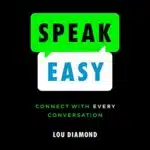
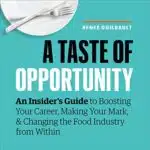
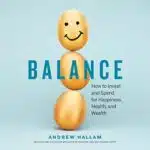
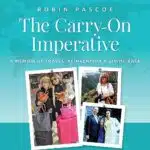
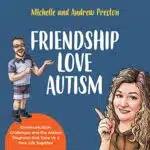
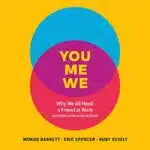
Leave a Reply